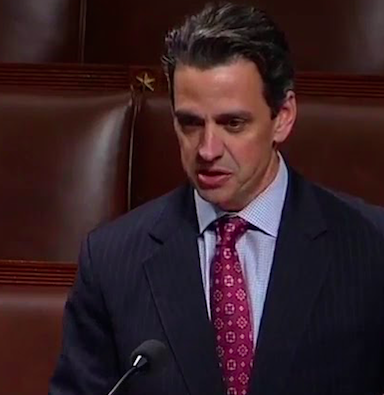By Jim Ellis

Georgia Rep. Tom Graves (R-Ranger/Rome) to retire
This week has been active. After Rep. Duncan Hunter (R-CA) pled in federal court to a campaign finance violation and will soon resign, and Rep. Denny Heck (D-WA) announced Wednesday that he won’ seek another term, six-term Georgia Rep. Tom Graves (R-Ranger/Rome) followed suit in releasing his social media message late last week declaring that the current term will be his last.
Though still young, Graves indicated to his local media that the reason for his retirement is to explore new avenues with his family now that his offspring have reached adulthood. He was in no political danger, having won his last election with 76 percent of the vote in a district that went 75-22 percent for President Trump in 2016.
The Graves decision moves the open-seat count to 35, with 24 coming from the Republican side of the aisle versus only 11 from the majority Democrats.
Georgia’s 14th District sits in the far northwest corner of the state, encompassing the relatively narrow area that borders both Tennessee and Alabama. The seat contains 11 counties and part of another, with the population relatively evenly spread throughout small towns and rural areas. The city of Rome, with a population of just over 36,000 people, is the district’s largest municipality, though Paulding County with just under 160,000 residents spread through small towns west of Marietta is the district’s most sizable population entity.
Since GA-14 has such a strong Republican voting history, the battle to replace Rep. Graves will occur in the GOP primary. We can expect a crowded field to soon form. The primary will assuredly yield the top two finishers advancing to a run-off, because it is a virtual certainty that no one will reach majority support in the first vote.
The state legislative district overlay suggests that the state Senate may produce the most viable contenders. The congressional district occupies five state Senate seats, all Republican, and parts of 15 state House districts, just one of which a Democrat represents. In the latter districts, no state House seat exceeds even 10 percent of the congressional district constituency.
While it is too early to speculate about who might actually jump into the race because the Graves announcement was surprising to everyone, several state senators could be key contenders. Three Senate districts hold an almost equal number of 14th District residents, just under 175,000 apiece. Therefore, Sens. Bill Heath (R-Bremen), Jeff Mullis (R-Chickamauga), and Chuck Payne (R-Dalton) would each have a significant base within the CD to begin a congressional campaign.
Though the open seat number is now creeping higher, the 35 incumbent-less political situations is average for a modern-day election cycle, yet still far behind every other election year in this decade. From 2010 to the present, the House open seat count has drifted between 47 and 64, inclusive.
This year, the competitive factor among the opens is even lower than in years past. Of the 35 open or vacant seats, just nine are rated in the lean or toss-up categories, and only one in the latter group. The open toss-up race also comes from Georgia. The state’s 7th District hosted one of the closest congressional contests in the nation last year, an election that Rep. Rob Woodall (R-Lawrenceville) carried by just 419 votes. With Woodall retiring next year, this race becomes wide open.
